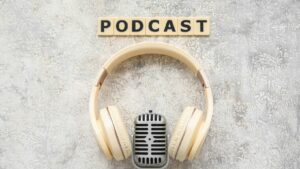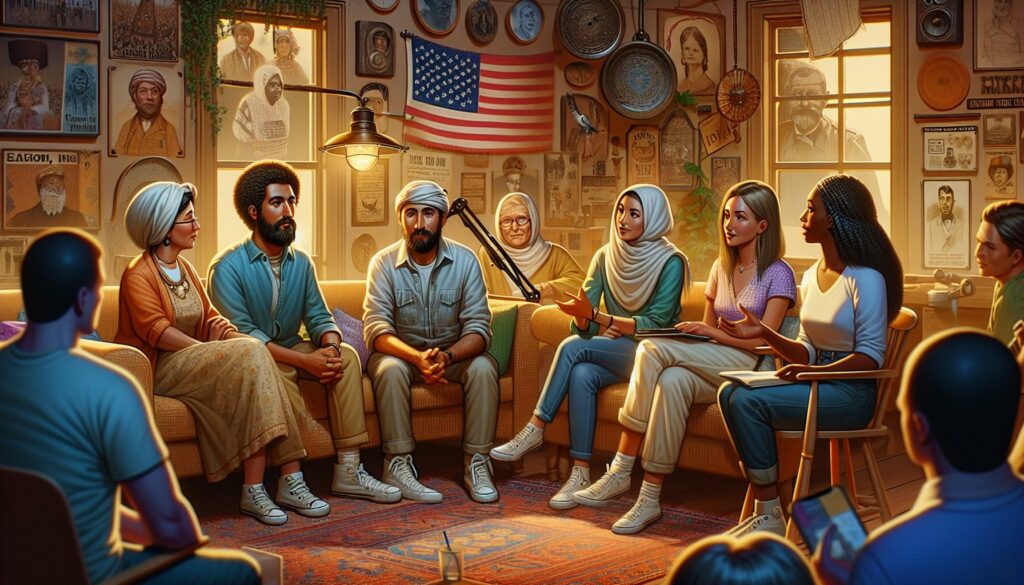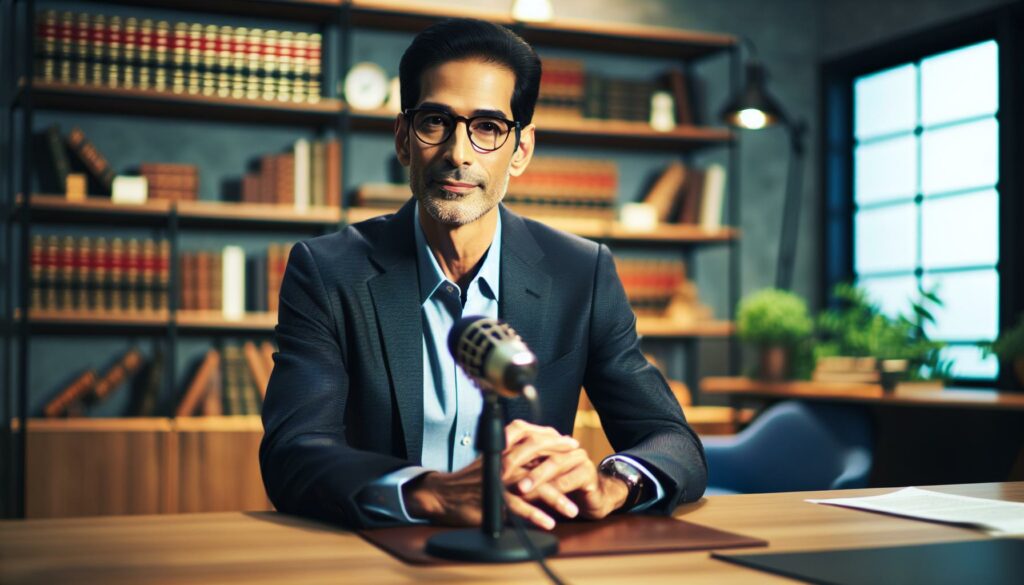If you’re a history buff like me, you know how captivating the stories of our past can be. The American History Tellers podcast brings those stories to life in a way that’s both engaging and informative. Each episode dives deep into a specific event or era, offering a fresh perspective on the events that shaped our nation.
What I love about this podcast is its ability to connect listeners with the human experiences behind historical facts. It’s not just about dates and names; it’s about the people who lived through those times. Join me as we explore how this podcast uncovers the rich tapestry of American history, making it accessible and relatable for everyone.
Key Takeaways
- Engaging Storytelling: American History Tellers podcast transforms historical events into captivating stories, focusing on personal narratives that highlight the human experience behind the facts.
- Diverse Topics: Each episode explores significant historical themes, such as the American Revolution, Civil War, and social movements, connecting listeners to the emotional aspects of these events.
- Thoughtful Format: The podcast features episodes that are 30 to 60 minutes long, with a consistent weekly release schedule, making it easy for listeners to stay engaged and informed.
- Expert Insights: Guest historians offer in-depth analysis and context, enhancing the storytelling and shedding light on lesser-known figures in American history.
- Cultural Representation: The podcast embraces a variety of voices through guest speakers, ensuring a multifaceted exploration of American history that reflects diverse experiences and perspectives.
- Educational Resource: Widely recognized for its educational value, the podcast serves as a useful tool for educators, students, and history enthusiasts, making complex topics easily understandable.
American History Tellers Podcast
The American History Tellers podcast dives deep into the stories that shaped the United States, focusing on personal experiences and narratives behind significant historical events. Each episode explores a unique theme, showcasing how people navigated challenges and triumphs throughout American history.
Listeners can expect a blend of well-researched content and engaging storytelling. The podcast features episodes on diverse topics, such as the American Revolution, Civil War, and pivotal social movements, effectively illustrating how these events impacted individual lives.
With a commitment to accessibility, the host employs a thoughtful narrative style, making complex subjects easy to grasp. This approach connects listeners to historical figures and ordinary citizens alike, bringing their stories to life. Episodes often include expert interviews and primary source materials, enriching the overall experience.
The podcast not only entertains but also educates, encouraging listeners to reflect on the past and its relevance to the present. By focusing on the stories that define American history, “”American History Tellers”” captivates audiences and fosters a deeper understanding of the nation’s narrative.
Key Themes Explored
The American History Tellers podcast delves into various themes that highlight pivotal moments in the nation’s past. Each episode connects listeners to the emotional and personal narratives that shaped America.
Major Historical Events
 Each episode covers major historical events such as the American Revolution, Civil War, and World War II. The podcast narrates events from the perspectives of individuals who experienced them, emphasizing personal stories alongside broader historical contexts. By sharing these firsthand accounts, the podcast illustrates how these events influenced ordinary lives and decisions, making the complexities of history more relatable.
Each episode covers major historical events such as the American Revolution, Civil War, and World War II. The podcast narrates events from the perspectives of individuals who experienced them, emphasizing personal stories alongside broader historical contexts. By sharing these firsthand accounts, the podcast illustrates how these events influenced ordinary lives and decisions, making the complexities of history more relatable.
Cultural Influences
This podcast explores cultural influences that have defined American identity. Episodes delve into themes like immigration, social movements, and civil rights, showcasing diverse voices and experiences. The storytelling highlights how culture and society interconnect, shaping the nation’s values and beliefs. By examining these influences, listeners gain a deeper understanding of the evolving American landscape and its impact on current societal issues.
Format and Structure
The American History Tellers podcast features a deliberate format that enhances the storytelling experience while delivering historical content effectively.
Episode Length and Frequency
Episodes typically range from 30 to 60 minutes in length, allowing for in-depth exploration of topics without overwhelming listeners. New episodes release weekly, providing a consistent schedule for listeners to anticipate. This frequency keeps engagement high, enabling audiences to connect with ongoing narratives in American history.
Narrative Style
The narrative style employs a compelling and immersive approach, blending factual information with vivid storytelling. Each episode utilizes a conversational tone, allowing historical figures’ voices to come alive through dramatization and reenactments. This method captivates listeners, making complex historical events accessible and relatable, transforming the interpretation of American history into a dynamic listening experience.
Notable Episodes
The American History Tellers podcast features several episodes that stand out for their compelling narratives and insightful storytelling. Each episode uncovers unique aspects of American history, resonating with listeners on multiple levels.
Highlights and Takeaways
- American Revolution Stories: I found the episodes detailing personal accounts from the American Revolution to be particularly eye-opening. These narratives showcase the bravery and struggles of everyday people, emphasizing their roles in shaping the nation. Listeners learn about soldiers, spies, and civilians, highlighting their varied contributions and sacrifices.
- Civil War Perspectives: Episodes focusing on the Civil War illustrate the profound impact of this conflict on families and communities. Personal letters and diaries provide intimate glimpses into the emotional turmoil of the time. I appreciate how these stories humanize the statistics of war, showcasing the resilience of individuals during a turbulent period.
- Social Movements: Highlighted episodes on social movements encapsulate the fight for civil rights and equality. By sharing firsthand accounts, the podcast conveys the passion and determination behind these efforts. It’s inspiring to hear about activists’ struggles and triumphs, making historical events feel immediate and relevant.
 Historian Insights: I value the episodes featuring guest historians who provide deep dives into specific topics. Their expert analyses add layers of context, enriching the stories told. For instance, discussions on lesser-known figures in American history bring to light their significant yet overlooked contributions.
Historian Insights: I value the episodes featuring guest historians who provide deep dives into specific topics. Their expert analyses add layers of context, enriching the stories told. For instance, discussions on lesser-known figures in American history bring to light their significant yet overlooked contributions.- Personal Narratives: Some episodes include interviews with descendants of historical figures, offering a unique perspective. Hearing their stories connects the past to the present, reminding listeners of the ongoing influence of these histories on current societal issues. These contributions make the narratives even more relatable and impactful.
- Diverse Voices: The podcast embraces diverse voices through guest speakers who share experiences from various cultural backgrounds. This approach not only enriches the storytelling but also emphasizes the multifaceted nature of American history, ensuring that multiple perspectives are included in the discussion.
These notable episodes exemplify the podcast’s commitment to bringing American history to life, making it accessible and engaging for all listeners.
Audience Reception
Audience reception of the “”American History Tellers”” podcast reflects its impact and popularity among listeners. Listeners appreciate the podcast’s ability to make history engaging and relatable, highlighting personal stories that resonate emotionally. The focus on human experiences adds depth, allowing audiences to connect intimately with historical events.
Listener reviews frequently praise the podcast for its thorough research and storytelling quality. Many comments mention the podcast’s ability to simplify complex historical narratives, making them accessible for diverse audiences. Engagement with social media further amplifies this reception as listeners share memorable episodes and discuss themes in online communities.
Ratings consistently show high approval, with many episodes averaging 4.5 to 5 stars on major podcast platforms. Positive feedback emphasizes the inviting tone and clear narration style, making historical episodes enjoyable and easy to follow. In addition, the episodic structure and regular weekly releases foster anticipation among listeners, increasing overall engagement.
The podcast’s educational value receives significant recognition, especially among educators and students. Many teachers integrate episodes into curricula to illustrate key historical concepts, enhancing classroom discussions. This educational perspective broadens the audience, appealing to history enthusiasts, students, and lifelong learners alike.
Overall, the podcast cultivates a loyal following, thriving on community engagement and shared enthusiasm for American history. Its commitment to storytelling that highlights the voices of ordinary people ensures continued success and positive reception among diverse listener demographics.
Rich Resource For Anyone Curious About American History
Listening to the American History Tellers podcast has been a transformative experience for me. It brings history alive in a way that feels personal and relatable. The stories shared resonate deeply and remind us that history isn’t just about dates and events but about the people who lived through them.
Each episode offers a fresh perspective on significant moments and movements that shaped our nation. I appreciate how the podcast embraces diverse voices and experiences, making it a rich resource for anyone curious about American history. Whether you’re a history buff or just looking to learn something new, this podcast is a must-listen. It’s not just about understanding the past; it’s about connecting with it on a human level.



